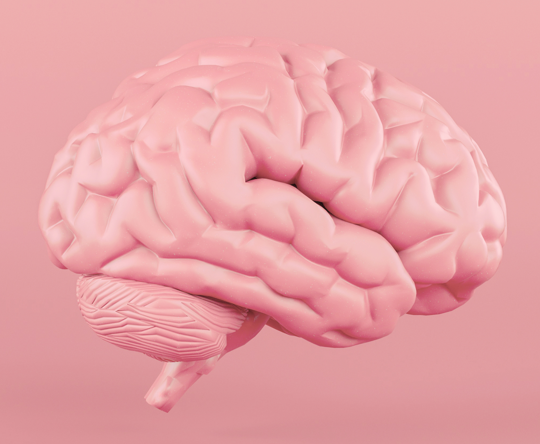Here is how to take care of your eye health daily and prevent diseases
The World Health Organization estimates that out of the 2.2 billion people suffering from eye diseases worldwide, for at least a billion of them the disease could have been prevented. Apart from aging and genetic predispositions, eye health is influenced by many other factors we have control over ourselves, thus preventing disease and improving our health. This is why leading ophthalmologists, neurologists, endocrinologists, psychiatrists, rheumatologists, otorhinolaryngologists, plastic surgeons, general practitioners, pharmacists and engineers are brought together at X-Lab — the expert research hub by JGL — to analyse the latest research and, by applying a holistic approach, to share with us how to take care of our eye health and why that is important for our whole bodies.
The eye muscles can work day and night without rest and, along with the heart, are the fastest and most loaded muscles in the body. The eye is connected to the central and autonomic nervous systems via neuromuscular structures in the ocular cavity as well as the entire visual pathway. And not only that – paranasal sinuses are anatomically closely related to the orbital cavity, and consequently to the eyeball, the eye muscles and the optic nerve. That is why sinuses are very important for eye health and why it is necessary to pay attention to nasal hygiene in order to have healthy eyes, warns Asst. Prof. Ratko Prstačić, PhD, Head of the Department of Phoniatrics, University Hospital Center Zagreb, exclusively for X- Lab JGL.
1 How are itching and redness of the eyes, runny nose and sneezing related?
Itching and redness of the eyes, runny nose and sneezing are the most common symptoms of allergic conjunctivitis and allergic rhinitis. In practice, these two different occurrences are very often diagnosed at the same time in persons with allergies, because some patients have problems with both the eyes and the nose. As a consequence of direct exposure of the mucous membrane of the eye to allergens – but also indirectly through the nasal-ocular reflex – allergic conjunctivitis presents as unpleasant itching, tearing and redness of the conjunctiva of the eye. Patients complain of having a feeling of sand in their eyes and a constant need to blink. On the other hand, the most common symptoms of allergic rhinitis are watery nasal secretions, sneezing and nasal obstruction.
As with other allergic diseases, prevention is the most important thing in suppressing symptoms, i.e., avoiding contact with allergens, and for this reason it is crucial to do allergy testing during the diagnostic procedure in order to determine which allergens affect the patient so they can avoid them. In terms of drug therapy, the most important drugs are oral antihistamines and nasal corticosteroid sprays. These take care of nasal symptoms well, but they also help a significant number of ocular symptoms by acting through the nasal-ocular reflex. In some patients with predominant ocular symptoms, it is necessary to introduce local antihistamines in the form of eye drops.
2 Do paranasal sinuses have an effect on eye health?
Paranasal sinuses are anatomically closely related to the orbital cavity, and consequently to the eyeball, the eye muscles and the optic nerve. Therefore, it is completely understandable that possible acute or chronic inflammatory processes of the paranasal sinuses can have a major impact on eye health and on vision itself. One of the most serious complications of acute sinusitis is the direct propagation of the inflammatory process in the orbital area. This condition is called orbital cellulitis. It is more common in childhood and in immunocompromised individuals. When diagnosed, it requires prompt treatment with high doses of broad-spectrum antibiotics, while some patients require urgent surgery.
In other cases, there is no direct propagation of the inflammatory process from the sinus to the orbital area; instead, there occurs a toxic effect of inflammation mediators on the optic nerve (usually as a result of chronic sinusitis), resulting in inflammation of the optic nerve (neuritis), which finally leads to weakening or complete vision loss in the affected eye. This is also an emergent situation, which requires treatment with high doses of corticosteroids, and it often requires surgical intervention in order to save the patient’s vision.
3 How to best take care of your eye health and prevent disease?
From an otorhinolaryngological point of view, the most important thing is to prevent potentially dangerous eye conditions, to adequately maintain the health of your nose and paranasal sinuses. By this I mean primarily taking the appropriate treatment for allergic or other chronic inflammatory conditions in the nose, maintaining nasal cavity hygiene by rinsing your nose with isotonic or hypertonic seawater solution. Regular oral hygiene (brushing your teeth and tongue) has long been a widely accepted daily routine. There is no reason why this shouldn’t be the case for our nasal cavity.
LITERATURE:
- J Bousquet, J Knani, A Hejjaoui, R Ferrando, P Cour, H Dhivert, F B Michel Heterogeneity of atopy. I. Clinical and immunologic characteristics of patients allergic to cypress pollen. Allergy. 1993;48:183-8.
- Baroody FM, Naclerio RM. Nasal-ocular reflexes and their role in the management of allergic rhinoconjunctivitis with intranasal steroids. World Allergy Organ J. 2011;4(1 Suppl):S1-5.
- Tsirouki T, Dastiridou AI, Ibánez Flores N, Cerpa JC, Moschos MM, Brazitikos P, Androudi S. Orbital cellulitis. Surv Ophthalmol. 2018;63:534-553.
- Neo WL, Chin DCW, Huang XY. Rhinogenous opticneuritis with full recovery of vision – The role of endoscopic optic nerve decompression and a review of literature. Am J Otolaryngol. 2018;39:791-795.
QUIZ
SUFFERING FROM DRY EYE SYNDROME? ANSWER THESE QUESTIONS AND FIND OUT HOW TO PREVENT IT AND WHAT TO DO WHEN YOU ARE ALREADY FEELING THE SYMPTOMS
QUIZ





